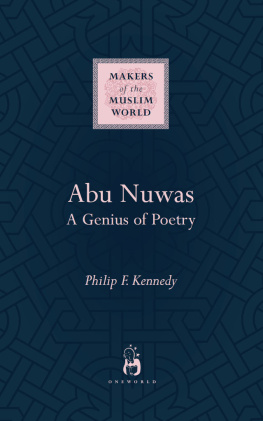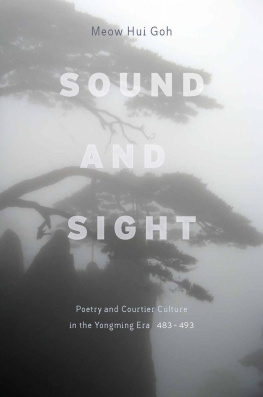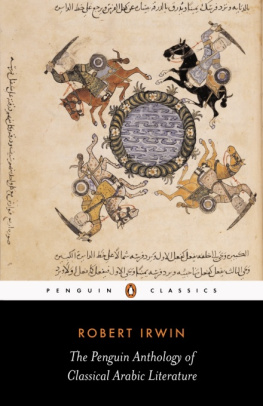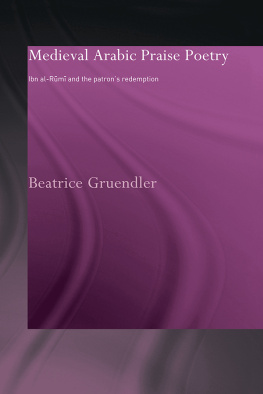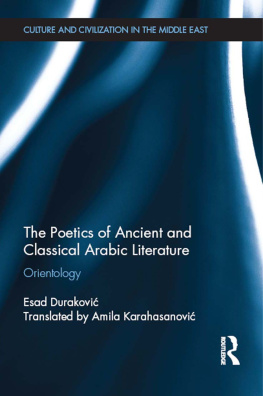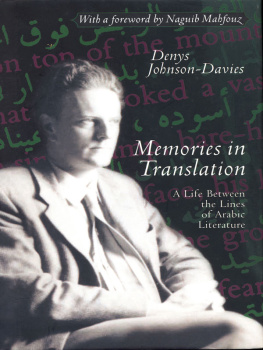
Abu Nuwas
Philip Kennedy has written a very good book on the great (in my view greatest) Arabic poet, Abu Nuwas ...The literary analysis is generally excellent, balanced and erudite.
GEERT JAN VAN GELDER , OXFORD UNIVERSITY
SELECTION OF TITLES IN THE MAKERS OF THE MUSLIM WORLD SERIES
Series editor: Patricia Crone, Institute for Advanced Study, Princeton
Abd al-Malik, Chase F. Robinson
Abd al-Rahman III, Maribel Fierro
Abu Nuwas, Philip Kennedy
Ahmad ibn Hanbal, Christopher Melchert
Ahmad Riza Khan Barelwi, Usha Sanyal
Al-Mamun, Michael Cooperson
Al-Mutanabbi, Margaret Larkin
Amir Khusraw, Sunil Sharma
El Hajj Beshir Agha, Jane Hathaway
Fazlallah Astarabadi and the Hurufis, Shazad Bashir
Ibn Arabi, William C. Chittick
Ibn Fudi, Ahmad Dallal
Ikhwan al-Safa, Godefroid de Callatay
Shaykh Mufid, Tamima Bayhom-Daou
For current information and details of other books in the series, please visit www.oneworld-publications.com/subjects/makers-of-muslim-world.htm

FOR GABRIEL, INDIA, MARIANNE AND
THEIR GRANDPARENTS
ABU NUWAS
Oneworld Publications
10 Bloomsbury St
London WC1B 3SR
England
www.oneworld-publications.com
First published by Oneworld Publications, 2005
This ebook edition first published in 2012
Philip F. Kennedy 2005
All rights reserved
Copyright under Berne Convention
A CIP record for this title is available from the British Library
ISBN: 978 1851685103
eISBN: 978 1780741888
Typeset by Jayvee, India
Stay up to date with the latest books, special offers, and exclusive content from Oneworld with our monthly newsletter
Sign up on our website
www.oneworld-publications.com
PREFACE
M edieval Arab society produced a fabulously, perhaps uniquely rich tradition of poetry which had an important role in defining cultural identity in pre-Islamic Arabia and the Muslim world alike. Any summary of the great poets of this tradition contains a handful of steady fixtures: usually Imru al-Qays (fl. early sixth century); perhaps al-Shanfara (sixth century), Majnun Layla (seventh century), Umar ibn Abi Rabia (d. 712), Abu Tammam (d. 845), al-Mutanabbi (d. 965) ...; and always in any list, except one that is unfairly censoring, Abu Nuwas (d. c. 814). His talent was extraordinary and showed in the matchless range and variety of his verse. He mastered most of the genres of Arabic poetry; he had an innate dexterity with words and in the formulation of ideas; he respected the spirit of inherited convention without ever being bound by its expression or false compare; and he was unusually poised in his employment of developing rhetorical devices (which some of his Abbasid peers could exploit excessively).
Abu Nuwas perfected two Arabic genres: the wine poem and the hunting poem. But he is remembered mainly for the former, with its erotic (often homosexual) elements, and especially for the licentiousness associated with it. His wine poetry and erotic poetry were by any standards singularly inventive; and when we add to them the remarkable sting of his invective verse he is not unjustly compared to the Earl of Rochester whose venomous yet somehow elegant poetic duels with poets of the court of Charles II are quite the apt measure of Abu Nuwass Arabic for the Anglophone reader. But there is more than the great Rochester in Abu Nuwas. Reading widely through his poetry one might come to sense that genius shows itself in amazingly similar ways in different cultures: there are reminiscences of Keatss wine coold a long age in the deep delvd earth with its beaded bubbles winking at the brim; Ronsards Hymne de Bacchus, with its alloy of pagan and monotheistic elements; Marvels seductive To His Coy Mistress; the tricky fluency of Skelton who was so much more than the brilliant eccentric for which we are apt to mistake him; and there is the Goliardic exuberance of the Carmina Burana alongside the gravity of Donnes Meditations.
The list, along with the whole comparative exercise, becomes forced the longer it gets. It is nave and unfair to appear exclusively to measure the achievements of one culture against those of another, though part of the delight of humanistic reading is to make connections. In fact, it is just as essential for the non-specialist to be told briefly what Arabic poetry is not. There are no extensive narrative poems. No verse dramas. Readers accustomed to, say, The Odyssey, Divina Commedia, Canterbury Tales, Hamlet, Paradise Lost, The Prelude, etc., may well believe that in order to be great a poet should compose poems of epic length. Yet Arabic poetry has its own largely unique norms and conventions: of form, meter, subject and the distinct collocation of themes. It can, of course, only be judged fully on these terms. The former (rhyme, form, meter, etc.) are largely trapped in the enhanced Arabic of the original poetry; but one can endeavor to translate and discuss the essential spirit of the themes. It is hoped that the latter will begin to emerge, according to distinctive genres and relating to the strong literary persona of Abu Nuwas, in the course of this introductory work.
The poems discussed in this book were all written in sustained monorhyme. They were of no fixed length, varying from fragments of two-to-five verses to poems of up to forty verses; each verse was divided into two hemistich halves (as I have tried to represent in the format of my translations). Each poem was written in one of a number of quantitative meters based on sustained patterns of long and short syllables. Some poems discussed in this book are quoted in full; however, much poetry is excerpted and this is indicated either in the accompanying prose commentary or by the use of ellipses (...).
The reader may find the following brief glossary of Arabic poetic terms useful:
Badi the collective term for a number of rhetorical devices developed in the eighth century and characteristic of Abbasid poetry in its heyday
Ghazal love/erotic poetry
Hija satire, satirical poetry
Khamriyya a wine poem
Madih praise poetry
Marthiya an elegy
Muallaqa a suspended ode, one of seven (some say ten) poems considered paragons of pre-Islamic poetry; according to legend they were suspended on the walls of the Kaba in Mecca in recognition of their quality
Muhdath Modern a term used to describe the poets of the mid-eighth century onwards whose style was influenced by rhetorical badi; they are distinguished in literary history from the Ancient Bedouin poets whose language and style, though greatly admired, were more archaic
Mujun profane, libertine or dissolute poetry
Naqida one half of a satirical duel
Nasib the opening movement of the multi-themed qasida (it is associated with an amatory theme and elegiac mood, and influenced some developments in ghazal)
Qasida multi-themed ode, the single most important poetic form from pre-Islamic to modern times
Tardiyya a hunting poem
Zuhdiyya an ascetic poem
Next page
